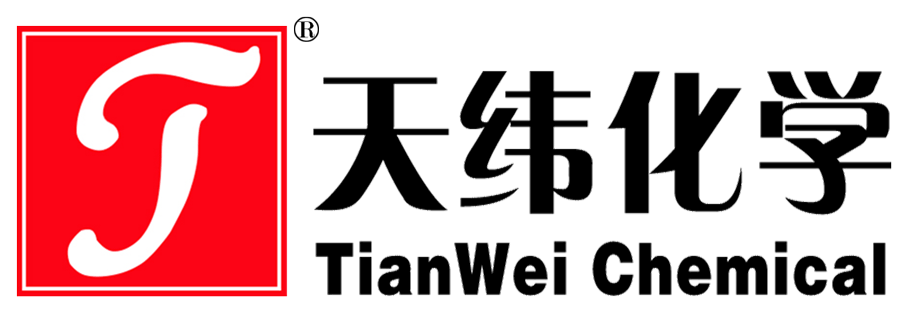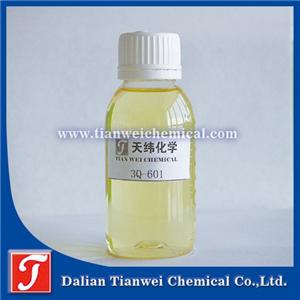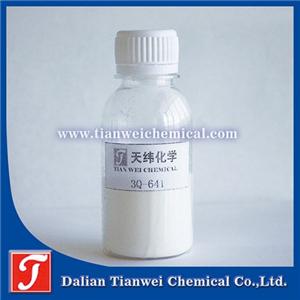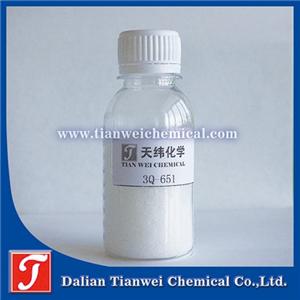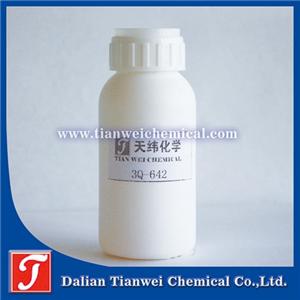-
Characteristics and advantages of dibromonitrilopropionamide (DBNPA)
Dibromonitrilopropionamide (alias dibromocyanoacetamide, DBNPA for short) is a new and efficient bactericidal algaecide and water treatment agent. The material has the advantages of high-efficiency broad spectrum, easy degradation, no residual residue, no pollution to the environment, and at the same time,
18-01-2021 -
A Comprehensive Introduction to Plastic Antibacterial Agents 2
Take the silver ion antibacterial agent as an example. Its mechanism of action is as follows: Release and Adsorption: Under the influence of water, silver ions slowly migrate to the surface of the plastic, and because bacteria carry a negative charge, they are adsorbed onto the surface of the bacteria.
10-02-2026 -
MS sealant mold inhibitor - 0-level mold prevention - long-lasting and effective
The mold inhibitor for MS sealant is an additive specially designed based on the characteristics of modified silane sealant (MS sealant). Its core function is to achieve a lifelong mold prevention effect for the MS sealant by blocking the environment for mold growth or directly killing the mold, reaching the highest mold prevention level of 0 grade as stipulated by the national standards. Here is a detailed introduction to the MS sealant mold inhibitor:
02-02-2026 -
Introduction to the Product Advantages of PP/PE Antibacterial Masterbatch
As a functional plastic additive, PP/PE antibacterial masterbatch uniformly disperses antibacterial agents into the base resin of polypropylene (PP) or polyethylene (PE), endowing plastic products with long-lasting antibacterial, mold prevention, deodorization, and other properties. The core advantages of this product can be analyzed from the following aspects:
20-01-2026 -
Polyester fabric antibacterial and dust-proof agent, resistant to water washing for more than 100 times
The antiseptic and dust-proof agent for polyester fabric is a functional additive specifically designed for treating chemical fiber fabrics such as polyester. Its core function is to endow the fabric with antibacterial and dust-proof properties, thereby enhancing the hygiene level of the fabric, prolonging its service life, and meeting consumers' demands for health and comfort.
19-01-2026 -
What role do preservatives and sterilizers play in industrial coatings?
Bactericidal preservatives play a significant role in industrial coatings. They can prevent the coatings from being contaminated by microorganisms during production, storage, and use, ensuring the quality and performance of the coatings.
14-01-2026 -
Antibacterial masterbatch for PE plastic packaging bags, with an antibacterial rate of 99.9%
The antibacterial masterbatch for PE plastic packaging bags is a special masterbatch made by mixing antibacterial agents with polyethylene (PE) resin. Its core function is to protect the contents of the packaging (such as food and daily necessities) from bacterial and mold contamination by inhibiting or killing microorganisms, while prolonging the service life of the packaging bag itself. Here is a detailed introduction:
12-01-2026 -
Silica sol mold inhibitor, grade 0 mold prevention, highly stable
Silica sol mold inhibitor is a mold-preventing material composed of nano-sized silica particles as the core component. It is prepared through specific formulations and processes. Its core mechanism of action is to prevent mold growth and reproduction by damaging the mold cell structure or inhibiting its metabolic activities. The following details are provided from four aspects: composition, mechanism of action, application scenarios, and advantages:
06-01-2026 -
The application of zinc ion antibacterial Agent in PC Circulation bucket
Zinc ion antibacterial agents, with their broad-spectrum antibacterial properties, safety and environmental friendliness, as well as heat stability, can theoretically be applied to PC circulation buckets to enhance hygiene performance. However, their feasibility needs to be comprehensively evaluated in combination with industry standards and actual application scenarios.
31-12-2025 -
Preservatives and mold inhibitors for textile yarns and fabrics provide long-lasting mold prevention
Preservatives and fungicides commonly used in textile yarns and fabrics are a type of chemical auxiliaries that can inhibit or kill microorganisms (such as bacteria, fungi, and yeasts). Their core function is to prevent problems such as mold, rot, odor, and strength reduction caused by microbial growth during the storage, processing, or use of textiles. The following is the specific introduction:
25-12-2025
